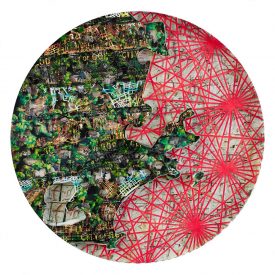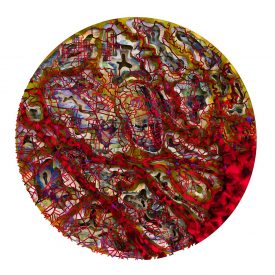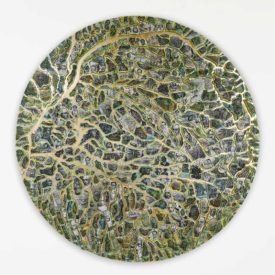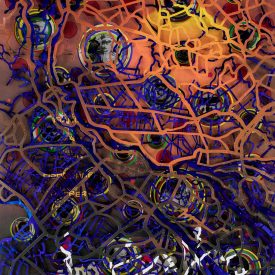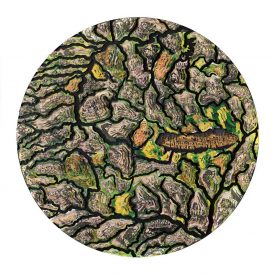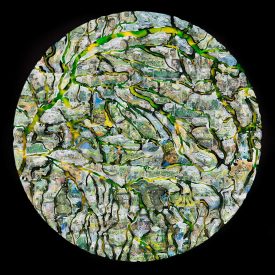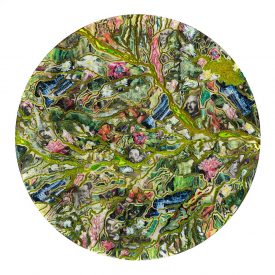Conquistadors
“History repeats itself, first as tragedy, second as farce’ said Karl Marx, alluding here to the cyclical nature of history, or history as cause and effect. What was done in one time will often be repeated in another. For much as in an individual’s history, where trauma suffered tends to have behavioral consequences, the wider human history tends to reflect the life experiences of the populace. The predicaments of today have some of their origins underpinned by the arrival of the seemingly insatiable appetites of the 19th century upon the shores of the new world.
Three centuries earlier the Spanish Conquistadors, Hernan Cortes in Mexico and Francisco Pizarro in Peru led the way for the early plunder of the new world. The Spanish first took their gold from the indigenous population and then, later from mining operations. The Spanish Conquistadores set in motion a pattern of theft, deceit and violence that could be seen as acting as a template for the future extraction of riches, the notion that vast wealth was for the taking by whatever means. The new world in the 19th century witnessed numerous booms in rubber, ivory, metals, minerals that tended to follow the example set, indigenous cultures endured a savage destruction at the hands of the European invaders.
El Dorado, was the mythical city of Gold, believed to exist somewhere in the vast Amazon basin, eventually, after three centuries of searching and many expeditions , it became evident that it was no more than a mirage. The dreams of untold wealth, nothing more than a black mirror to human greed and vanity. If, here in the twenty first century we feel ourselves to be at the tip of a precipice, then in 1900 human beings stood on the edge of this cycle, as the relatively pristine environments of the new world awaited the arrival of the mechanized 20th century. F Scott Fitzgerald, was clearly all to aware of the destruction going on in the world and with great prescience captured the essence of this at the end of The Great Gatsby “ Gradually I became aware of the old island here that flowered once for Dutch sailors’ eyes – a fresh, green breast of the new world. Its vanished trees, the trees that had made way for Gatsby’s house, had once pandered in whispers to the last and greatest of all human dreams; for a transitory moment man must have held his breath in the presence of this continent, compelled into an aesthetic contemplation he neither understood nor desired, face to face for the last time in history with something commensurate to his capacity for wonder”
The Amazon and The Congo, the two greatest river systems in the world lie across the Atlantic from each other both draining much of their respective continents. Both witnessed a similar and parallel exploration, in an almost identical time period in the early years of the 1900s. In the Amazon the frenzy, megalomania and riches of the Rubber boom were being mirrored by Belgian King Leopold’s Congo, with a similarly ferocious and brutal extraction of rubber and Ivory. It could be said that the ghost of Leopold still hangs over the Congo, the effects of past traumas continuously repeating themselves into the present.
In the Congo where Joseph Conrad set his controversial account of the period, the prototype of the now famous figure of Mr Kurtz emerged. Kurtz was probably an amalgamation of several people, existing beyond the reaches of law and morality at the time. Kurtz is perhaps more still, a savage icon of predatory colonial greed, the heart of the darkness in this case, the savage mindset of the invaders that rampaged through the pre industrial new world. Francis Coppola aptly transferred the tale to The Vietnam war in his film Apocalypse now. At once converting an old tale of Colonial subjugation and destruction of indigenous life in to the contemporary present, with a modern day version of a Colonial empire interfering in the activities of nation states. Vietnam was just one of many countries in which the United states became actively involved in backing anti communist forces. The Congo was no exception, with the The United States assisting in the arrest and execution of the newly independent Congo’s first democratically elected leader, Patrice Lumumba. This led to Mobutu Sese Seko taking power. Thus putting into power a leader whose rule was in many ways to duplicate the dark narrative of Leopold’s Belgian Congo. If the golden age of the Venetian empire collapsed collapsed partially though corruption and decadence, then Mobutu’s Zaire whose entire rule from the very beginning was marked by the theft and appropriation of everything was doomed from the outset.
Apocalypse now feels like a film that is partly about the consequences of history, a sort of logical endpoint to the crimes of colonial history. A history that is still only slowly being recognized and owned up to, for example in Belgium there still exists garlanded statues to King Leopold
